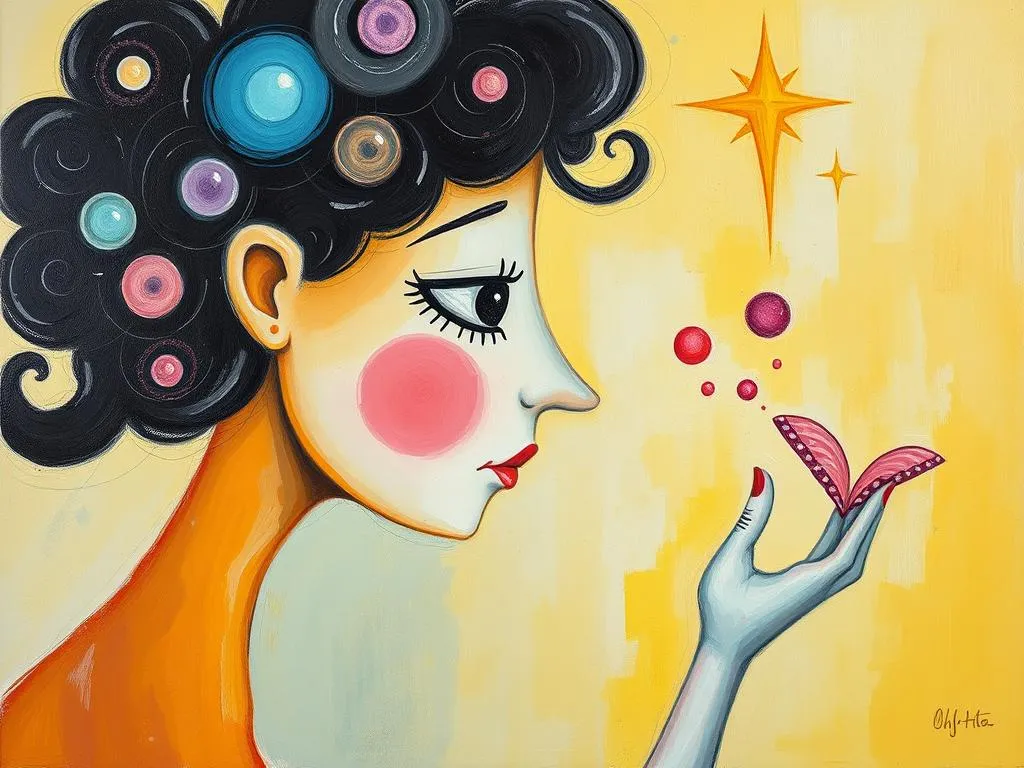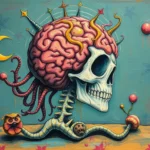
Have you ever woken up from a dream that left you feeling unsettled or anxious? Dreams can often be a reflection of our subconscious thoughts and feelings, and when they take on a negative tone, it can be particularly disconcerting. The symbols we encounter in these dreams can be powerful indicators of underlying issues in our waking lives. Understanding these symbols can not only help us navigate our emotional landscape but also aid in our personal growth.
In this article, we’ll delve into the world of negative dream symbols, exploring their meanings from various cultural perspectives and psychological viewpoints. By gaining insight into these symbols, we can transform our fears into tools for understanding and growth. Let’s embark on this journey together—after all, every dream can be a stepping stone toward self-discovery.
Shadows of the Mind: Decoding Negative Symbols
Dream symbols can be as varied as the people who dream them. While some symbols may appear harmless or even positive, others can evoke feelings of dread or anxiety. Recognizing and interpreting these negative symbols is the first step toward understanding their implications in our lives.
One of the most common negative symbols is falling, which often represents a feeling of loss of control or insecurity. When we dream of falling, it can signify that we are facing overwhelming challenges or fears in our waking lives. Falling can also represent a fear of failure—perhaps we feel unprepared for a situation or worry about disappointing ourselves or others.
Another common symbol is being chased, which can indicate avoidance or a desire to escape from responsibilities or emotions we’re not ready to confront. This symbol often reveals an inner conflict—perhaps we’re running from a part of ourselves that we find difficult to accept. Chase dreams can be a call to face your fears rather than evade them.
Teeth falling out is another symbol that many people find disturbing. This dream often relates to feelings of powerlessness or vulnerability. It can signify concerns about aging, attractiveness, or loss of status. In many cultures, teeth are associated with self-image and confidence, so losing them in a dream can highlight insecurities we may not be acknowledging in our waking life.
The symbol of water, particularly in its turbulent forms, can represent emotional turmoil. If you dream of being swept away by a flood or drowning, it may signify that you are overwhelmed by your feelings or life situations. This can serve as a reminder to confront these emotions rather than suppress them, as doing so can lead to personal growth.
Lastly, darkness or being trapped in a confined space carries a heavy weight in dream symbolism. Darkness often signifies fear, ignorance, or the unknown, while feeling trapped can reflect feelings of being stuck in life or unable to make progress. These dreams can act as powerful motivators to seek clarity and liberation in your waking life.
The Dark Side of Dreaming: Scenarios to Reflect On
Understanding negative dream symbols is easier when we can relate them to our own experiences. Here are a few common scenarios that might resonate with you.
-
The Falling Dream: Imagine you are standing on the edge of a cliff, and suddenly you lose your footing and begin to plummet. As you fall, you feel a mix of fear and helplessness. This dream may point to a situation in your life where you feel unsteady or at risk of losing something important. Ask yourself—what area of your life feels out of control? Is there a decision you’ve been avoiding?
-
The Chase: Picture yourself running through a dark alley, with an unknown figure pursuing you. No matter how fast you run, you can’t seem to escape. This dream may reflect feelings of anxiety or stress in your waking life—perhaps you’re grappling with a daunting task or a difficult relationship. Consider this—what are you running from? Is it time to confront what you’ve been avoiding?
-
Teeth Falling Out: Envision looking in the mirror and noticing that your teeth are crumbling and falling out. You feel a deep sense of embarrassment and worry about how you’ll be perceived. This dream might signal issues with self-esteem or concerns about your appearance. Reflect on this—what insecurities are you holding onto? How can you nurture a more compassionate view of yourself?
-
Drowning in Turmoil: Imagine you’re swimming in turbulent waters, struggling to keep your head above the surface. Panic sets in as waves crash over you. This dream can symbolize emotional overwhelm—perhaps you are dealing with stress, anxiety, or grief. Think about this—what emotions are you currently grappling with? How can you seek support to navigate through them?
-
Trapped in Darkness: Picture yourself in a small, dark room with no way out. You feel claustrophobic and panicked, unsure of how to escape. This dream may signify feelings of being stuck or trapped in your current situation. Contemplate this—what is holding you back in your life? Is there something you need to release or change in order to move forward?
Illuminating the Path: Using Dreams for Personal Growth
Dreams, particularly negative ones, can serve as powerful catalysts for personal growth. Instead of letting these dreams haunt you, consider them invitations to explore your inner world. Here are some practical steps to harness the insights from your dreams:
-
Keep a Dream Journal: Writing down your dreams can provide clarity and help you identify recurring themes or symbols. By documenting your experiences, you can track your emotional responses and see how they relate to your waking life. This practice can also enhance your self-awareness, allowing you to confront issues you may have been avoiding.
-
Embrace Reflection: After experiencing a negative dream, take time to reflect on its potential meanings. Ask yourself what feelings or situations the dream might be pointing toward. Consider using journaling prompts like, “What was I feeling during the dream?” or “What aspects of my life could this symbolize?” Engaging in this reflective practice can lead to valuable insights.
-
Seek Support: Sharing your dreams with trusted friends or a therapist can provide new perspectives and insights. Sometimes, discussing your dreams can reveal connections or patterns that you may not have noticed on your own. Remember, you’re not alone in this—many people experience negative dreams, and talking about them can be incredibly healing.
-
Practice Mindfulness: Incorporating mindfulness practices into your daily routine can help ease anxiety and foster emotional resilience. Techniques such as meditation, deep breathing, or yoga can help you process difficult emotions and cultivate a sense of calm. As you become more attuned to your feelings, you may find that the impact of negative dreams lessens over time.
-
Transform Fear into Action: Use the insights gained from your dreams to inspire positive changes in your life. If you’re grappling with feelings of insecurity, for example, take proactive steps to build your self-esteem. Whether it’s pursuing a new hobby or setting personal goals, remember that every setback can be a setup for a comeback.
In conclusion, negative dreams may feel unsettling, but they are rich with potential for growth and self-discovery. By embracing these symbols and reflecting on their meanings, you can transform fear into understanding and anxiety into action. As you navigate the complexities of your emotions, remember that each dream is a message from your subconscious, guiding you toward a deeper understanding of yourself. Embrace the lessons they offer, and let them illuminate your path forward.
Reflect on this: What if your dreams are not just reflections of your fears, but also the keys to unlocking your full potential?







